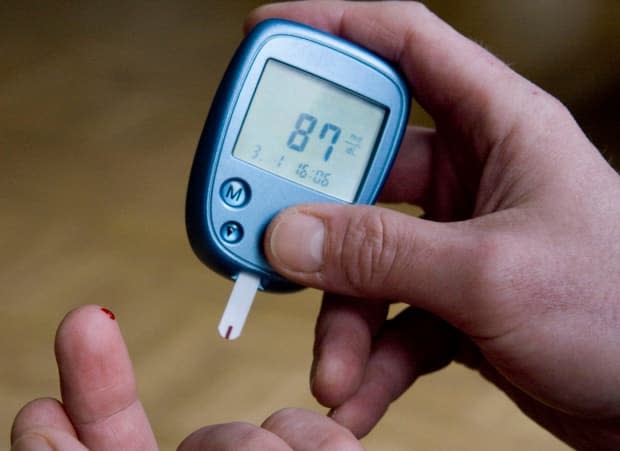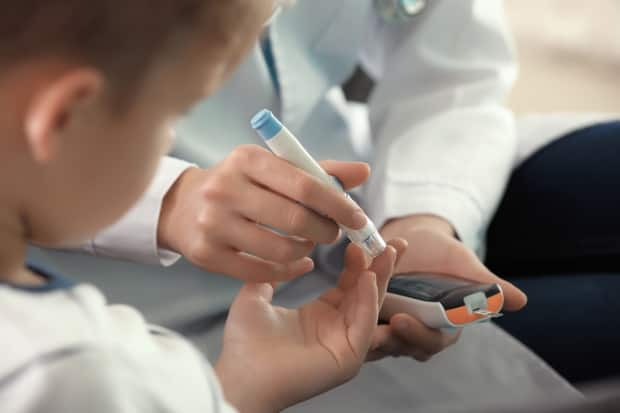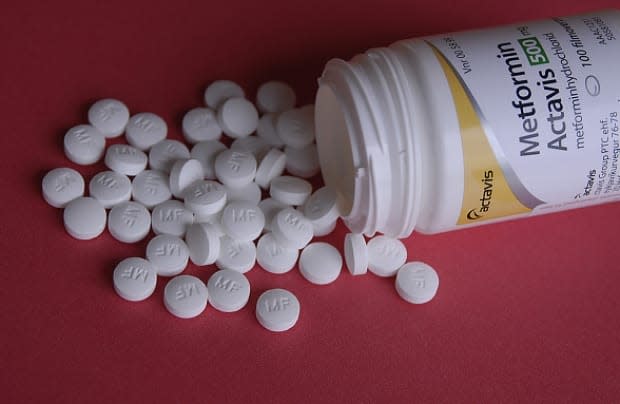Global research consortium examines if COVID-19 may cause diabetes

Ever since Metro Vancouver resident Craig Spanza was infected with COVID-19 at work this past March, he has fought myriad long-term after-effects that include debilitating brain fog, exhaustion and shortness of breath.
But Spanza, 49, has also been dealing with a new diagnosis that came rather unexpectedly since he got sick: rapid-onset, Type 2 diabetes.
"It sure feels like it was triggered by COVID," Spanza said. "The doctor said I was off the charts for the random glucose tests."
Spanza is not alone. Around the world, physicians treating people recovering from COVID-19 have noticed that some of their patients have been diagnosed with diabetes shortly after contracting the virus.
It's been well established that having diabetes is likely to cause worse outcomes for those who contract COVID-19.
Now, an international consortium of researchers is trying to find out if the novel coronavirus may also cause diabetes in some people. The project is a joint initiative between King's College London and Australia's Monash University.
The researchers are trying to establish how diabetes might develop in those who have contracted COVID-19.
Diabetes epidemic
Sathish Thirunavukkarasu, an investigator at the Population Health Research Institute at McMaster University, is the sole Canadian researcher tied to the consortium.

"The diabetes burden is increasing certainly over the last decade," he said over a video call from India, where he was visiting family.
"So you really want to understand whether COVID-19 could play an important factor in driving this diabetes epidemic."
People who have diabetes either can't produce insulin (usually known as Type 1 diabetes), or can't properly use the insulin the pancreas produces (also known as Type 2 diabetes).
Insulin regulates the amount of sugar in the blood in order to ensure that the body functions properly. If left untreated, diabetes can cause kidney disease, heart disease, blindness and strokes and even death.
Long-term studies needed
Thirunavukkarasu says medical experts first discussed the potential link in a commentary in the New England Journal of Medicine last year.
They are still trying to determine if COVID-19 is causing Type 1 or Type 2 diabetes, or an entirely different type altogether, although he says at this point it mostly looks like Type 2 diabetes.
SARS-CoV-2, the virus that causes COVID-19, has been shown to attack cells in the pancreas, Thirunavukkarasu says, which could explain the link between the two diseases.

He points out that elevated blood sugar levels were also detected in some patients during the SARS outbreak in 2003, although in most of those cases that issue resolved itself after a few months.
"Long-term studies are needed to really understand whether the diabetes ... is transient or whether it gets converted to diabetes for a long period of time," he said.
Undiagnosed diabetes
Amanda Sterczyk, manager of health research and policy analysis at Diabetes Canada, says her organization is keeping an eye on the research.
"It's going to take a number of years of research to fully understand what's happening here," she said.
Sterczyk says it's important to note that many cases of diabetes go undiagnosed because some people have inadequate access to healthcare and others don't know which symptoms and warning signs to watch for.

Diabetes Canada estimates there may be as many as 1.5 million people across the country with undiagnosed diabetes.
Sterczyk says it's possible that the sudden onset of diabetes in COVID-19 patients may be because those people are interacting with the health system and finally getting diagnosed.
Measuring A1Cs
Thirunavukkarasu acknowledges that's possible.
He says a systematic review of studies found that, of about 3,000 COVID-19 patients, about 14.4 per cent who were hospitalized with the virus were diagnosed with diabetes for the first time — but that figure includes people who had diabetes before contracting COVID-19 and had not yet been diagnosed.
One way to tell if the diabetes may have gone undiagnosed prior to COVID-19 is to look at a patient's A1C test results, which measures average blood sugar levels over the past three months.

Thirunavukkarasu says some people who develop diabetes after a severe COVID-19 infection have normal A1C levels but high short-term blood sugar levels, which would suggest they did not have diabetes before they got sick.
Researchers are currently looking at data that specifically includes A1C levels. Like Sterczyk, he says more research is needed.

 Yahoo Movies
Yahoo Movies 